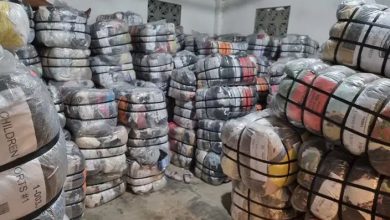Requirements And Cost Of Starting A Boutique Business In Kenya
A boutique business in Kenya refers to a small-scale retail establishment that offers a carefully curated selection of fashionable clothing, accessories, and other related products. Unlike large department stores or mass-market retailers, boutiques focus on providing a personalized and intimate shopping experience, often specializing in specific niches such as women’s clothing, children’s wear, ethnic fashion, or high-end designer labels.
Kenyan boutiques are known for their distinct style, incorporating elements of traditional African aesthetics and contemporary fashion trends. They often showcase locally made or sourced products, supporting homegrown designers and artisans. Moreover, boutiques in Kenya strive to offer customers a unique assortment of merchandise that sets them apart from mainstream retail outlets.
Successful boutique businesses in Kenya prioritize customer engagement, enabling strong relationships with them. They create an inviting atmosphere, paying attention to store atmosphere, visual merchandising, and exceptional customer service. Additionally, many boutiques embrace digital platforms and social media to extend their reach, connect with a wider audience, and enhance their brand visibility.
Remember, while starting a boutique business in Kenya can be profitable, it is important to conduct thorough market research, understand your target audience, and develop a unique value proposition that sets your boutique apart from the competition.
Here in this article, we will walk you through our Frequently Asked Questions on boutique business, so that you will have more knowledge about the requirements.
What Are Some Mistakes To Avoid When Starting A Boutique Business In Kenya?
Starting a boutique business requires careful planning and execution. To ensure your success, it’s important to avoid certain mistakes commonly made by aspiring boutique owners. Here are some key pitfalls to steer clear of:
- Inadequate Market Research: Failing to conduct thorough market research can lead to poor product selection and targeting the wrong customer segment.
- Lack Of Unique Selling Proposition: Without a unique selling proposition, your boutique may struggle to differentiate itself from the competition. Identify your niche, target audience, and unique value proposition to stand out.
- Ineffective Inventory Management: Poor inventory management can result in overstocking or understocking, leading to financial losses and dissatisfied customers. Implement a robust inventory management system to ensure optimal stock levels.
- Neglecting Customer Service: Exceptional customer service is crucial for any boutique business. Neglecting it can damage your reputation and hinder customer loyalty. Train your staff to deliver personalized and attentive service.
- Ignoring Online Presence: In today’s digital age, neglecting an online presence is a missed opportunity. Embrace e-commerce and establish a strong online presence to reach a wider customer base.
What Are The Challenges Faced By Boutique Businesses In Kenya?
Running a boutique business in Kenya poses certain challenges to the industry. Understanding these challenges can help you prepare and develop strategies to overcome them. Here are some challenges faced by boutique businesses:
1. Intense Competition: The boutique industry in Kenya is highly competitive, with numerous players competing for customers’ attention. Standing out requires a well-defined brand, exceptional quality, and excellent customer service.
2. Fluctuating Fashion Trends: Staying informed of the ever-changing fashion trends can be a challenge. Regularly updating your inventory and keeping up with the latest styles is essential to meet customer demands.
3. Supply Chain Management: Sourcing reliable suppliers and managing the supply chain can be a challenge. Ensuring consistent product quality, timely deliveries, and favorable pricing is vital for a successful boutique business.
4. Seasonal Variations: Kenya experiences distinct seasonal variations, which can impact customer preferences and buying patterns. Adapting your inventory and marketing strategies to cater to seasonal demand is essential.
5. Rising Costs: Operating costs, such as rent, utilities, and employee salaries, can be a significant challenge for boutique businesses. Cost management and effective budgeting are key to maintaining profitability.
What Are The Most Profitable Items To Sell In A Boutique In Kenya?
Selecting the right products for your boutique is vital to attract customers and driving sales. While preferences may vary, certain items tend to be popular and profitable in the Kenyan boutique market. Consider including the following items in your inventory:
1. Clothing: Offer a diverse range of clothing items, including dresses, tops, skirts, trousers, and traditional attire. Focus on sourcing high-quality, fashionable pieces that cater to various customer preferences and body types.
2. Accessories: Accessories complement outfits and provide an opportunity for upselling. Stock a wide range of accessories such as handbags, shoes, jewelry, belts, scarves, and hats. Ensure your accessories are trendy, unique, and of good quality.
3. Beauty And Personal Care Products: Expand your offerings by including beauty and personal care products like cosmetics, skincare items, fragrances, and hair accessories. You can as well partner with reputable brands or consider developing your boutique-exclusive product line.
4. African-Inspired Art And Crafts: Embrace the rich cultural heritage of Kenya by combining African-inspired art and crafts into your boutique. This can include traditional fabrics, woven baskets, beaded jewelry, and unique home decor items.
5. Children’s Clothing And Accessories: Tap into the growing market for children’s clothing and accessories. Stock fashionable and age-appropriate items that appeal to parents and caregivers.
Remember, it’s important to regularly assess customer choices and adapt your product selection accordingly. Stay updated on the latest fashion trends and conduct market research to identify emerging opportunities.
Where Can I Find Suppliers For My Boutique Business?
Finding reliable and high-quality suppliers is vital to the success of your boutique business. Here are some avenues to explore when sourcing suppliers:
1. Trade Shows And Exhibitions: Attend local and international trade shows and exhibitions focused on fashion and textiles. These events bring together suppliers, manufacturers, and designers, providing an excellent opportunity to establish connections and discover new suppliers.
2. Online Supplier Directories: Use online supplier directories and platforms that connect retailers with wholesalers and manufacturers. Some popular platforms include Alibaba, Kenya Trade Portal, and Kenya Manufacturers and Exporters Directory.
3. Local Fashion Districts: Explore local fashion districts or marketplaces where you can find a concentration of suppliers, manufacturers, and wholesalers. These areas often have a wide variety of fashion-related businesses, making it easier to source products and negotiate favorable deals.
4. Networking And Referrals: Connect with other boutique owners, industry professionals, and fashion designers through networking events, social media groups, and industry associations. They can provide valuable recommendations and referrals for reliable suppliers.
5. Direct Approach: Approach local designers, artisans, and manufacturers directly to discuss potential collaborations or sourcing opportunities. Establishing direct relationships can lead to unique product offerings and more favorable pricing.
What Are The Legal Requirements For Starting A Boutique Business In Kenya?
Complying with legal requirements is very important when starting a boutique business in Kenya. Here are some legal considerations:
1. Business Registration: Register your business with the Registrar of Companies under the Companies Act or as a sole proprietorship or partnership under the Business Names Act. And also Obtain the necessary business registration certificates, such as the Certificate of Incorporation or Business Name Certificate.
2. Tax Obligations: Register for tax purposes with the Kenya Revenue Authority (KRA) and obtain a Personal Identification Number (PIN). Comply with tax regulations, including filing tax returns, VAT obligations (if applicable), and employee PAYE (Pay As You Earn) taxes.
3. Licenses and Permits: Obtain the necessary licenses and permits to operate your boutique business. This may include a Single Business Permit from the county government, a Fire Safety Certificate, and a Health Inspection Certificate. Check with the relevant local authorities for specific requirements.
4. Employment Laws: Get to know the employment laws in Kenya, such as minimum wage requirements, working hours, and employee benefits. Ensure proper employment contracts are in place and comply with labor regulations.
5. Intellectual Property Protection: Consider protecting your boutique’s intellectual property, such as trademarks, logos, and designs. Consult with an intellectual property lawyer to understand the registration process and safeguard your brand.
It’s advisable to seek legal counsel or engage the services of a business consultant to ensure full compliance with all legal requirements. They can guide you through the registration process, help you understand your tax obligations, and ensure that you meet all necessary licensing and permit requirements.
What Are The Best Locations To Open A Boutique Business In Kenya?
Choosing the right location for your boutique business can impact its success. Consider the following factors when selecting a location:
1. High Foot Traffic: Look for areas with high pedestrian traffic, such as busy shopping centers, commercial districts, or popular tourist destinations. A location with a steady flow of potential customers increases the visibility and exposure of your boutique.
2. Target Market Proximity: Identify your target market and choose a location that is easily accessible to them. Consider factors such as demographics, lifestyle preferences, and shopping habits of your target customers.
3. Competitor Analysis: Conduct a thorough competitor analysis to understand the presence of other boutiques in the area. Look for locations with a healthy balance between competition and demand.
Consider areas where your boutique can offer a unique value proposition or cater to an underserved market segment.
4. Infrastructure And Amenities: Assess the availability of basic infrastructure, such as good transportation links, parking facilities, and nearby amenities like restaurants or cafes. These factors can enhance the convenience and overall shopping experience for your customers.
Ultimately, the best location for your boutique business will depend on your specific target market, budget, and unique value proposition. Thorough investigations of these factors will help you make an informed decision.
How Can I Open A Boutique Business Online In Kenya?
Expanding your boutique business online can open up new opportunities and reach a larger customer base. Here are the steps on how to open an online boutique in Kenya:
1. Create An E-commerce Website: Set up a user-friendly and visually appealing e-commerce website for your boutique. Choose a reliable e-commerce platform that offers features like product listings, shopping cart functionality, secure payment gateways, and order management systems.
2. Product Photography: Invest in high-quality product photography to showcase your inventory effectively. Clear and attractive visuals are so important for online sales. You can consider hiring a professional photographer or learning basic photography skills to capture appealing product images.
3. Online Payment Options: Integrate secure and convenient online payment options into your e-commerce website. Explore popular payment gateways in Kenya, such as M-Pesa, PayPal, or mobile banking options, to provide customers with a seamless and trusted payment experience.
4. Marketing And Promotion: Develop a comprehensive digital marketing strategy to promote your online boutique. Use social media platforms, influencer collaborations, email marketing, search engine optimization (SEO), and paid advertising to increase brand visibility and drive traffic to your website.
5. Logistics And Fulfillment: Set up a reliable logistics and fulfillment system to handle order processing, packaging, and shipping. Partner with trusted courier services to ensure timely and secure delivery of orders to your customers.
6. Customer Engagement: Implement effective customer engagement strategies to build trust and loyalty. Provide exceptional customer service, promptly respond to inquiries, and consider implementing a loyalty program or offering exclusive discounts for online customers.
How Much Does It Cost To Start A Boutique Business In Kenya?
The general budget for starting a boutique business in Kenya depends on the scale you want to start with. But on average you will need Kshs 100,000 – Kshs 500,000, this cost should cover the basic requirements such as business registration, rental or lease, store setup, inventory, and supplies.
How Can I Expand My Boutique Business In Kenya?
Expanding your boutique business in Kenya requires careful planning and strategic decision-making. Here are some strategies to consider:
1. Diversify Your Product Range: Expand your product offerings to cater to a broader customer base. Introduce new clothing lines, accessories, or complementary products that align with your brand and target market.
2. Online Expansion: Enhance your online presence and expand your e-commerce operations. Explore selling on popular online marketplaces, collaborating with influencers or bloggers, and implementing digital marketing strategies to reach a wider audience.
3. Collaborations And Partnerships: You should form strategic collaborations and partnerships with complementary businesses or designers. This can include joint marketing campaigns, co-branded products, or pop-up events, allowing you to tap into new customer segments.
4. Expand To Multiple Locations: If your boutique business is thriving in its current location, consider opening additional branches in strategic areas with high potential customer traffic. Expand gradually to manage operational and financial challenges effectively.
5. Customer Loyalty Programs: Implement customer loyalty programs to reward repeat customers and encourage brand loyalty. Offer exclusive discounts, early access to new collections, or personalized shopping experiences to foster long-term relationships with your customers.
6. Enhance Customer Experience: Continuously improve your customer experience to differentiate your boutique from competitors. Offer personalized styling services, host events or fashion shows, and actively engage with customers through social media platforms and newsletters.
7. Wholesale And Distribution: Explore opportunities to supply your products to other retailers or boutique businesses. Develop a wholesale strategy, establish partnerships with retailers, or consider creating a distribution network to reach a wider customer base. This can involve selling your products to other boutiques, department stores, or online retailers.
8. Market Expansion: Consider expanding your target market by identifying new customer segments or niche markets. Conduct market research to understand emerging trends, customer preferences, and untapped opportunities.
9. Improve Operations And Efficiency: Streamline your operations to improve efficiency and reduce costs. This can involve optimizing inventory management, implementing effective supply chain strategies, and investing in technology solutions to automate processes.
10. Build Strong Supplier Relationships: Nurture relationships with your suppliers to secure favorable pricing, exclusive product offerings, and timely deliveries. Strong supplier relationships can give your boutique a competitive advantage and ensure a consistent supply of high-quality products.
11. Customer Feedback And Reviews: Actively seek feedback from your customers to understand their needs and choices. And use the feedback to improve your products, services, and overall customer experience. Encourage customers to leave reviews and testimonials to build trust and attract new customers.
12. Constant Market Research: Stay updated on the latest fashion trends, and consumer behavior through continuous market research. This will help you identify new opportunities, adapt your offerings, and stay ahead of the competition.
13. Brand Building And Marketing: Invest in brand-building activities to create a strong and recognizable brand. Develop a unique brand identity, consistently communicate your brand values, and engage in targeted marketing campaigns to increase brand awareness and attract new customers.
Summary On How To Start A Boutique Business In Kenya
Starting a boutique business in Kenya requires careful planning and execution. Here are the steps to get started:
1. Conduct Market Research: Understand the target market, customer preferences, and competition. Identify gaps or opportunities that your boutique can fill.
2. Develop A Business Plan: Create a comprehensive business plan that outlines your goals, target market, products, pricing, marketing strategies, and financial projections. This plan will serve as a roadmap for your boutique business.
3. Register Your Business: Register your business with the appropriate authorities, such as the Registrar of Companies or county government, depending on the legal structure you choose (sole proprietorship, partnership, or limited company).
4. Secure Funding: Determine your startup costs and explore funding options such as personal savings, loans, grants, or investment partners. Develop a financial plan and budget to manage your finances effectively.
5. Find A Suitable Location: Choose a location that aligns with your target market and offers high visibility and accessibility. Consider factors like foot traffic, competition, and affordability.
6. Source Suppliers: Identify reliable and quality suppliers for your boutique products. Attend trade shows, explore online directories, and establish direct relationships with designers, manufacturers, or wholesalers.
7. Set Up Your Boutique: Design and set up your boutique space to create an inviting and beautiful pleasing environment. Consider the store layout, fixtures, lighting, and signage that align with your brand image.
8. Stock Inventory: Purchase your initial inventory based on market research and customer preferences. Ensure a diverse and well-curated collection that aligns with your target market.
9. Develop A Marketing Strategy: Create a marketing plan to promote your boutique. Use online and offline marketing channels, social media platforms, collaborations, and events to build brand awareness and attract customers.
10. Hire Staff: If needed, hire staff members who align with your brand values and have a passion for fashion.









